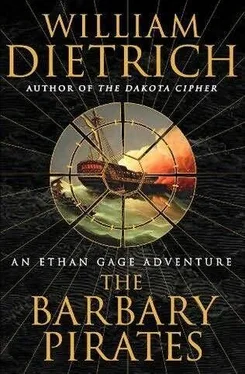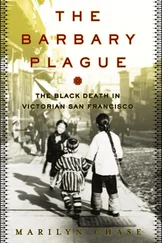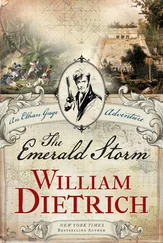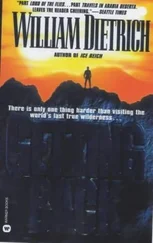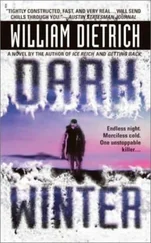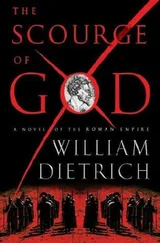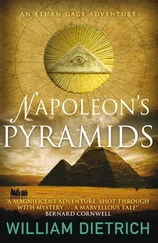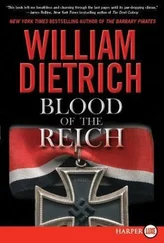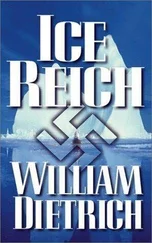William Dietrich - The Barbary Pirates
Здесь есть возможность читать онлайн «William Dietrich - The Barbary Pirates» весь текст электронной книги совершенно бесплатно (целиком полную версию без сокращений). В некоторых случаях можно слушать аудио, скачать через торрент в формате fb2 и присутствует краткое содержание. Жанр: Фэнтези, Исторические приключения, на английском языке. Описание произведения, (предисловие) а так же отзывы посетителей доступны на портале библиотеки ЛибКат.
- Название:The Barbary Pirates
- Автор:
- Жанр:
- Год:неизвестен
- ISBN:нет данных
- Рейтинг книги:4 / 5. Голосов: 1
-
Избранное:Добавить в избранное
- Отзывы:
-
Ваша оценка:
- 80
- 1
- 2
- 3
- 4
- 5
The Barbary Pirates: краткое содержание, описание и аннотация
Предлагаем к чтению аннотацию, описание, краткое содержание или предисловие (зависит от того, что написал сам автор книги «The Barbary Pirates»). Если вы не нашли необходимую информацию о книге — напишите в комментариях, мы постараемся отыскать её.
The Barbary Pirates — читать онлайн бесплатно полную книгу (весь текст) целиком
Ниже представлен текст книги, разбитый по страницам. Система сохранения места последней прочитанной страницы, позволяет с удобством читать онлайн бесплатно книгу «The Barbary Pirates», без необходимости каждый раз заново искать на чём Вы остановились. Поставьте закладку, и сможете в любой момент перейти на страницу, на которой закончили чтение.
Интервал:
Закладка:
The ring had a flattened section like a miniature seal, and we saw immediately that it bore the word "Thira." In the background was a domed building with part of the dome missing, as if someone had taken a bite, like a crescent moon. In the foreground was what looked like a stone sarcophagus meant to bury the dead, with its lid open. A man in robes and a medieval cap appeared to be climbing into the coffin, as if it were a bath. Or perhaps he was climbing out.
"What does it mean?"
"No one knows," the policeman said, "but it obviously refers to the island. Why would Templars forge this of such an obscure place? Thira is little more than a cinder. This Greek patriot you will meet may find this useful in helping you."
"Perhaps that's where the weapon is," I said, studying the piece. "He's climbing in to get it." Compared with the medallion I'd carried in Egypt, this one seemed plain enough.
"Then you're to do the same. Look at its reverse."
I turned the ring to inspect the flattened part that would be against the skin. There was another dome, this one quite normal, and inside it the letter "A."
"What does that mean?"
"We have no idea. Deciphering this object will keep you occupied on your trip to Thira. The essence, gentlemen, is speed. Go swiftly, go silently, and go ahead of any pursuit."
"Pursuit?" I always hate that.
Cuvier rubbed his weary face. "At least we can study the volcano. Maybe we will be lucky enough to have it erupt."
"Wouldn't that be a treat," I said drily.
"Good!" Napoleon said. "Now-who wants a shot at my swans?"
CHAPTER EIGHT
Napoleon promised we could accomplish our mission in a month or two. And indeed, with Europe in peace and the roads mostly dry in high summer, we made our way overland from Paris to Venice in a mere two weeks, traveling south through France and then east across the new Cisalpine Republic that Napoleon had created after his victory at Marengo. I saw no evidence we were being followed. Of course our enemies, if they hadn't given up, might guess exactly where we were going, given that Osiris, Marguerite, and Fouche all seemed more aware of what was going on than we were. Our quest was probably about as secret as a failure of contraception in the ninth month. On the other hand, perhaps we'd discouraged the Egyptian Rite or Fouche had delayed them, and the entire trip would be a holiday lark.
While my companions were less than happy at being drafted and blamed me for Bonaparte's coercion, they were also excited about traveling at French government expense. Cuvier had been entrusted with our allowance, though like all pursers he was hard to persuade to spring for the nobler vintage of wine or choicer haunch of meat. "I have to account for your consumption at the end of all this," he'd grumble, "and I'm damned if I know how to explain to the ministry why this wheel of cheese was necessary over that one-which is cheaper and a hundred grams heavier, as well."
"I thought you French put food above art, or even love," Smith said.
"But when it comes to expenditures, our accountants have the taste of the English."
I didn't complain. I was aware that I was riding in a coach, with no assignment but to get somewhere, when so many people were not. We'd pass long rows of peasants scything at dusk, or stable boys mucking out horse stalls with sunburned shoulders, or a maid parting a sea of chickens that closed up behind her as she left a trail of scattered grain. I thought how different, how safe and how dull, to be tied to one place and have one's days dictated by the turn of the seasons. I'd walk to stretch in the evenings, eating a piece of fruit, and if I came upon a boy who seemed smart or a mademoiselle who was pretty, I might show them my longrifle and even help by shooting a crow out of a tree. They treated such a diversion like magic, and me like an exotic visitor from another world.
The savants were apprehensive but excited. They'd see a geologically dramatic island at the edge of the Ottoman Empire, dabble in political intrigue, and maybe make an archaeological discovery or two. Certainly our mission was more thrilling than academic meetings. The truth was that I still had some reputation as a hero, and the scholars hoped a little of my dash might rub off. I couldn't blame them.
We settled into roles: I the not-entirely-trusted-yet-redoubtable guide, Cuvier our paymaster and skeptical supervisor, Smith the make-the-best-of-it dogged Englishman always ready to shoulder more than his share of luggage or responsibility, and Fulton our tinkerer, who proved fascinated by every waterwheel and canal lock. The inventor helped pass the time by sketching out schemes to improve the suspension of our coach, all of which the driver dismissed as impractical or too expensive.
We also discussed, from boredom, the need to rewrite the history of the world.
"What we know is that rocks have been laid down and worn away over eons," Smith said. "But how? By catastrophe, like a volcano or great flood, or the patient erosion of wind and rain? And why all that fuss at all, before we humans even appeared in Creation? What was God's point?" He picked up rocks at every way station, marked their type on his map of France-the stones all looked the same to me, but he told them apart like a drover picks out his cattle-and then tossed them out the coach window.
"We also know that there were many creatures alive on earth that no longer exist," Cuvier said, "many of them gigantic. Did Creation start with more variety and greater grandeur that has since been thinned and shrunken by time? That seems a peculiar kind of progress. Are we the pinnacle of Creation, or its shrunken fruit? Or have animals actually changed from one kind into another, as suggested by Saint-Hilaire? I find his proposal ridiculous for any number of reasons, not the least of which is that we have no idea how such a mutation could occur."
"He told me that odd idea in Egypt," I put in, cradling my longrifle between my legs. It wasn't just nervous habit; I'd been robbed on the stage before. "More interesting to me is the question of how civilization got started, and whether marvelous things were once known and then forgotten after the fall of the Roman Empire. Some of my acquaintances have suggested that myths of the ancient gods actually refer to early beings who somehow taught mankind how to grow, build and write, and by doing so lifted us out of the mud. The Egyptian Rite thinks the knowledge of such ancestors, if relearned, could provide terrible power. I've seen some things to make me suspect they might be right."
"What things?" Cuvier asked. He'd brought a red-leather notebook and pen to record our discoveries, a tin officer's field kit with scissors, comb, and toothbrush, and a combination clock and compass in a copper case. He'd write down our remarks and mark our direction with every entry, as if no one had ever mapped the highway before.
"A book that caused nothing but trouble. And a tool, a hammer, that was even worse."
"And now we're off to find an ancient weapon," said Fulton, "with Bonaparte, Fouche, and those lunatics in Madame Marguerite's bordello curious about it, too. Why Napoleon is so anxious about forgotten weapons, when he won't give a proper hearing to my modern ones, is beyond me." He was amusing himself by taking apart his own pocket watch for the pleasure of putting it back together, but kept losing sprockets and springs when the coach went over bumps, making us have to look for them on the vehicle's dusty floor. Cuvier took care to keep his own compass-clock out of the inventor's reach.
"It's human nature to see the flaws in what you have and perfection in what you don't," I said. "Besides, buying your submarine or steamboat means uncomfortable change, Robert. Sending us on a treasure hunt to conspire with a Greek patriot risks nothing."
Читать дальшеИнтервал:
Закладка:
Похожие книги на «The Barbary Pirates»
Представляем Вашему вниманию похожие книги на «The Barbary Pirates» списком для выбора. Мы отобрали схожую по названию и смыслу литературу в надежде предоставить читателям больше вариантов отыскать новые, интересные, ещё непрочитанные произведения.
Обсуждение, отзывы о книге «The Barbary Pirates» и просто собственные мнения читателей. Оставьте ваши комментарии, напишите, что Вы думаете о произведении, его смысле или главных героях. Укажите что конкретно понравилось, а что нет, и почему Вы так считаете.
